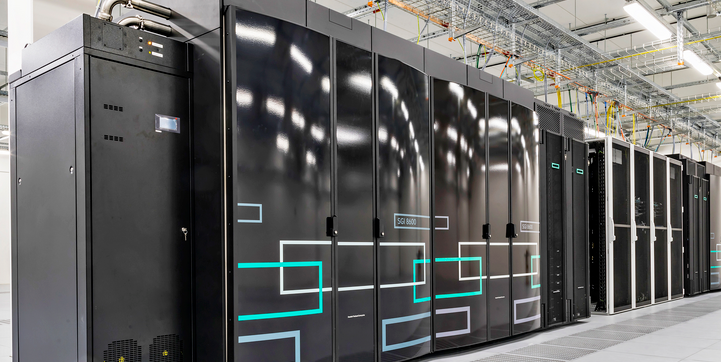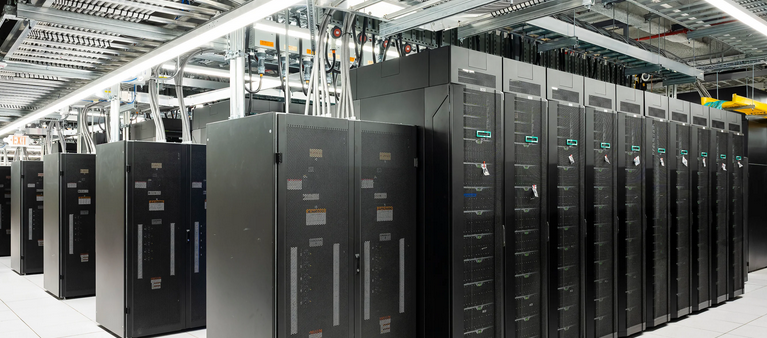Supercomputers are not just the behemoths of the computing world; they are also indispensable tools that have revolutionized scientific research. With their extraordinary processing power, supercomputers have enabled researchers to tackle complex problems and make breakthroughs in various fields. In this article, we will delve into the crucial role that supercomputers play in scientific discoveries and research.

Supercomputers: Pioneers of Scientific Advancements
Supercomputers have evolved from their early days as experimental machines to becoming indispensable tools for scientists worldwide. Their computational prowess allows scientists to simulate and analyze complex phenomena that were previously beyond reach. Whether it’s simulating climate patterns, modeling molecular interactions, or predicting the behavior of galaxies, supercomputers have opened new frontiers in scientific exploration.
Advancing Climate Science
One of the most pressing challenges of our time is understanding and mitigating climate change. Supercomputers are at the forefront of climate research. They can simulate intricate climate models, analyzing vast datasets to predict future climate trends. These simulations help policymakers make informed decisions about environmental policies and assess the potential impact of climate change.
Breaking Down the Barriers of Particle Physics
In particle physics, experiments at facilities like CERN generate colossal amounts of data. Supercomputers are instrumental in processing and analyzing this data, enabling researchers to unlock the mysteries of the universe. They help simulate particle collisions and predict outcomes, narrowing down the search for new particles and fundamental forces.
Revolutionizing Drug Discovery
In the field of pharmaceuticals, supercomputers are accelerating drug discovery processes. They can simulate the interactions between drug compounds and biological molecules, significantly reducing the time and cost required to develop new medications. This computational approach enables researchers to identify potential drug candidates more efficiently.
Astronomy and Astrophysics
Supercomputers have also played a pivotal role in advancing our understanding of the cosmos. They facilitate the simulation of galaxy formations, black hole behavior, and the dynamics of celestial bodies.
Unraveling the Mysteries of Genetics
The field of genomics relies heavily on supercomputers to analyze and interpret vast amounts of genetic data. These computers are indispensable in the study of diseases, personalized medicine, and gene editing techniques like CRISPR.
Challenges and Future Developments
While supercomputers have ushered in a new era of scientific exploration, they are not without challenges. The power consumption and cooling requirements of these machines are substantial. Hence, ensuring their energy efficiency and sustainability is an ongoing concern.
Additionally, as research becomes more data-intensive, there is a growing need for even more powerful supercomputers. This has led to international efforts to develop exascale computing systems, which can perform a billion billion calculations per second. Hence, these computers promise to revolutionize scientific research further.
Space Exploration
Furthermore, these computers are essential for space agencies like NASA and private companies like SpaceX. They assist in the simulation and analysis of spacecraft trajectories, planetary landings, and space missions. Hence, supercomputers help ensure the safety and success of space exploration endeavors.
Materials Science
In materials science, these computers aid researchers in understanding the properties and behavior of various materials at the atomic and molecular levels. This knowledge is crucial for developing new materials with unique properties, such as lightweight and durable materials for aerospace or advanced alloys for engineering.
Conclusion
In conclusion, supercomputers are not merely tools; they are partners in scientific discovery. Their ability to process immense volumes of data, run complex simulations, and model the behavior of everything from subatomic particles to entire ecosystems has transformed the landscape of research. As we look to the future, it is clear that supercomputers will continue to push the boundaries of human knowledge, helping us tackle some of the most pressing challenges facing our world. Whether in climate science, particle physics, drug discovery, or any other scientific endeavor, supercomputers remain at the forefront of innovation, enabling us to unravel the mysteries of the universe and improve the human condition.

